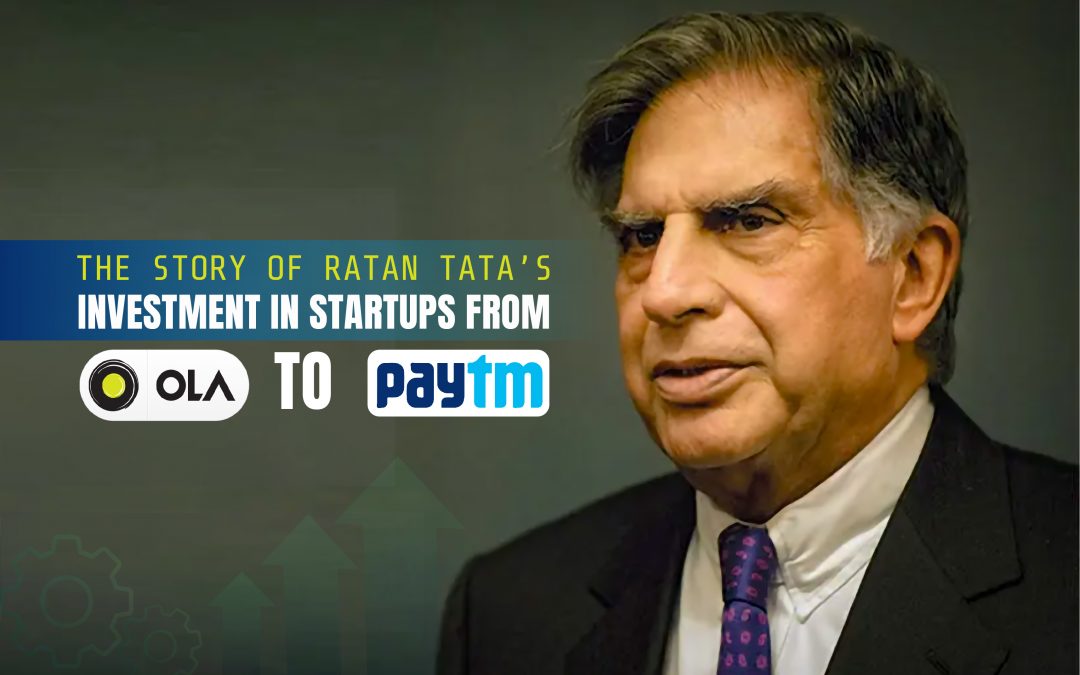Ratan Tata’s journey as an investor in startups is as much about his business acumen as it is about his belief in the power of innovation. Known for his ability to spot potential where others might not, Tata’s investments have become case studies in how to evaluate and nurture emerging businesses. Let’s dive deeper into how he analyzed each of his investments and explore more startups that have benefited from his strategic insight.
Ratan Tata’s Investment Philosophy: A Strategic Approach
Ratan Tata is not your typical investor. His approach is deeply rooted in values and a long-term vision. Here are some key aspects of his investment philosophy:
- Understanding the Founders: Tata places significant emphasis on the vision, passion, and integrity of the founders. He believes that the success of a startup is largely determined by the people behind it. Before investing, Tata often meets with the founders to understand their motivations, commitment, and long-term goals. He looks for entrepreneurs who are not just driven by profit but are also committed to solving real-world problems.
- Market Potential and Innovation: Tata is drawn to startups that are pioneering new markets or bringing innovation to existing ones. He analyzes whether the product or service addresses a significant need in the market and whether it has the potential to scale. This is evident in his investment in Paytm, where he saw the potential of digital payments to revolutionize the way Indians transact.
- Social Impact: Beyond profitability, Tata is interested in the social impact of a startup. He believes in supporting businesses that can bring about positive change in society. His investments often reflect this, with a focus on sectors like healthcare, education, and sustainable technology.
- Long-Term Vision: Unlike many investors who seek quick returns, Ratan Tata is known for his patience and willingness to wait for a startup to mature. He understands that building a lasting business takes time, and he supports entrepreneurs who are in it for the long haul.
Analyzing Investments: Key Examples
1. Ola: Revolutionizing Urban Mobility
When Tata invested in Ola in 2015, the ride-hailing market in India was still in its early stages. However, Tata recognized the potential of Ola to transform urban transportation. His decision was influenced by several factors:
- Founder’s Vision: Tata was impressed by Bhavish Aggarwal, Ola’s co-founder, and his vision to address India’s transportation challenges. Aggarwal’s passion for making mobility accessible to all resonated with Tata’s belief in inclusive growth.
- Market Need: Tata understood the growing demand for affordable and reliable transportation in India’s rapidly urbanizing cities. Ola’s model of offering cabs at various price points was a solution that could scale across the country.
- Innovation: Ola’s use of technology to connect drivers with passengers was seen as a game-changer. Tata recognized the disruptive potential of this model in India’s fragmented transportation sector.
2. Paytm: Pioneering Digital Payments
Ratan Tata’s investment in Paytm was a strategic move at a time when digital payments were still gaining traction in India. His analysis was guided by:
- Visionary Leadership: Tata was impressed by Vijay Shekhar Sharma’s leadership and his ambition to build a cashless economy in India. Sharma’s clear vision for the future of digital payments aligned with Tata’s belief in the power of technology to drive financial inclusion.
- Market Potential: Tata saw the enormous potential in India’s largely unbanked and underbanked population. He understood that a platform like Paytm could democratize access to financial services.
- Strategic Timing: Tata’s investment came before the demonetization in India, which later accelerated the adoption of digital payments. His ability to foresee the shift towards digital financial transactions showed his deep understanding of market trends.
3. Urban Ladder: Redefining Online Furniture Shopping
Urban Ladder, a startup focused on online furniture retail, attracted Tata’s attention due to its potential to disrupt the traditional furniture industry. His investment was based on:
- Founder’s Integrity: Tata valued the integrity and customer-first approach of the founders, Ashish Goel and Rajiv Srivatsa. Their commitment to quality and customer satisfaction was a major factor in his decision.
- Market Opportunity: Tata recognized the growing demand for high-quality, affordable furniture in urban India. Urban Ladder’s online model offered a convenient solution that catered to the evolving needs of Indian consumers.
- Scalability: The startup’s potential to scale across India and tap into the country’s burgeoning middle class was a key consideration in Tata’s investment.
More Investments in Tata’s Portfolio
Ratan Tata’s investment portfolio is extensive and spans various sectors. Some other notable investments include:
- CureFit: A health and fitness startup founded by Mukesh Bansal and Ankit Nagori. Tata saw the potential in their holistic approach to wellness, which combined fitness, mental well-being, and nutrition.
- Lenskart: An online eyewear retailer that has transformed the way Indians buy glasses. Tata was drawn to the startup’s innovative use of technology and its focus on accessibility and affordability.
- Zivame: An online lingerie retailer that has empowered women by offering a comfortable and private shopping experience. Tata’s investment was guided by the startup’s mission to break the stigma around lingerie shopping in India.
- Xiaomi: Tata invested in the Chinese smartphone manufacturer Xiaomi, recognizing its potential to capture a significant share of the Indian market with its affordable yet feature-rich smartphones.
- Lybrate: A healthcare startup that connects patients with doctors online. Tata’s investment was driven by the startup’s potential to make quality healthcare accessible to millions in India.
The Impact of Ratan Tata’s Investments
Ratan Tata’s investments have not only provided financial support to these startups but also brought them immense credibility. His involvement often acts as a stamp of approval, attracting more investors and partners. Moreover, Tata’s mentorship has been invaluable to many of these startups, guiding them through challenges and helping them scale.
His investments have also had a broader impact on the Indian startup ecosystem, inspiring other investors to take risks and support innovative ideas. Tata’s focus on long-term growth and social impact has set a benchmark for responsible and visionary investing.
Conclusion: A Legacy of Strategic Investments
Ratan Tata’s investment journey is a masterclass in strategic investing. His ability to identify potential, coupled with his commitment to ethical business practices, has made him one of the most respected investors in the startup world. His investments in companies like Ola, Paytm, and others have not only transformed these businesses but have also contributed significantly to the growth of India’s startup ecosystem.
As more entrepreneurs continue to innovate and disrupt industries, Ratan Tata’s legacy will remain a guiding force, reminding us of the importance of vision, patience, and the human element in business success.













